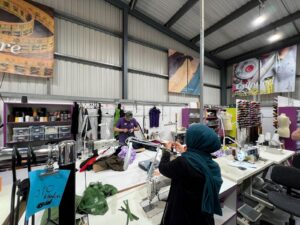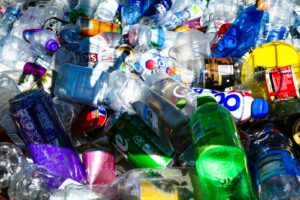Good brews in the war against plastic waste
It seems that everybody these days is talking about about single-used plastics, but one British firm has been leading for the way for several years.
 Formed in 2014, Ecoffee Cup offers hot drink lovers a reusable cup made from natural bamboo fibre, which can be used again and again.
Formed in 2014, Ecoffee Cup offers hot drink lovers a reusable cup made from natural bamboo fibre, which can be used again and again.
The firm saw sales soar by more than 700% over the last 12 months as people became more interested in the idea of a reusable coffee cup.
Environment Journal spoke to the company’s founder, David McLagan about his new brand of cup and how this year will see the tide finally turn on plastic waste.
You’ll have to pardon the pun, but to what extent is the tide turning against plastic waste?
I’m hopeful that 2018 will represent a significant tide-turn in the war on waste. Since late last year we’ve witnessed a profound increase in focus from both media and government on the problems associated with single-use waste. However, it remains ubiquitous, particularly in food service and the wider retail environment. While the issue may have peaked, it will take a considered and ongoing shift in mind set in order to make any meaningful impact. This could take well over a decade and we should be realistic in what we can hope to achieve. But definitely less hashtactivism, more action.
What do you think is more significant – growing consumer awareness about the issue or retailers/manufacturers recently changing their policies?
I think they go hand-in-hand. Most consumers have demonstrated a willingness to make environmentally-considerate changes to their behaviour as their awareness of an issue grows; the 5p shopper bag charge a good case-in-point. To that end, sustained awareness campaigns are vital, as is continued media coverage driven by programmes such War on Waste and Blue Planet. They are critical in bolstering awareness. Sadly, retailers and manufacturers usually only act when consumers demand, hence the reluctance of coffee chains to act until shamed.
Have you seen interest grow in Ecoffee Cup (pictured) since the issue of single-use cups and the ‘latte levy’ hit the headlines?
Significantly. Since we started in 2014, growth has been consistent and relatively steady, even though most people didn’t understand much about the problem. Fast forward to mid-2017 when Hugh Fearnley-Whittingstall’s War on Waste shone a mainstream spotlight on the issue, followed by Blue Planet II and talk of a ‘latte levy’… These triggers have propelled overall sales fourfold. The single-use waste issue is most definitely on the social agenda today.
This may sound like a silly question, but what are the environmental benefits of a reusable cup like Ecoffee Cup?
The scale of the problem is almost difficult to fathom. After decades of misinformation in the market, the vast majority of people still believe that single-use cups are recyclable; they are not. 99% end up in landfill. Globally, that equates to over 100 billion per year – or 273,972,603 every single day going to landfill. In a war of this scale, every single cup we divert from landfill by re-using is a victory! Our mantra has always been: Act as if what you do makes a difference. It does.
Specifically, Ecoffee Cup is manufactured with bamboo fibre – the world’s fastest-growing and most-sustainable crop.
 Should there be legislation or even a tax to curb the use of single-use products?
Should there be legislation or even a tax to curb the use of single-use products?
We believe consumers respond best to a combination of incentive and deterrent. Independent cafes and coffee chains have responded well so far with incentives – Pret A Manger’s 50p discount is a game changer, and as competition in this space hots up, so too will the incentives.
The next milestone will be to get the so-called ‘latte levy’ right. For my mind, 25p sounds a bit excessive because you really don’t want something that is unduly detrimental to small businesses in cafe industry in terms of profitability and jobs. However, a tax can and does work when it comes to changing consumer behaviour.
What can local authorities do to encourage people to use fewer single-use items?
Cash-strapped local authorities are forensically looking for ways to save money, so we’re not here to tell them how to do their jobs. But from our perspective we always say issue awareness is key.
Every single cup we can keep out of the waste management system represents a saving for local authorities, but fundamentally this change can only come from education of both consumers and food service operators alike. Local authorities are at the coalface of this change and we are happy to provide product and advisory programmes to help them achieve their waste reduction objectives.















